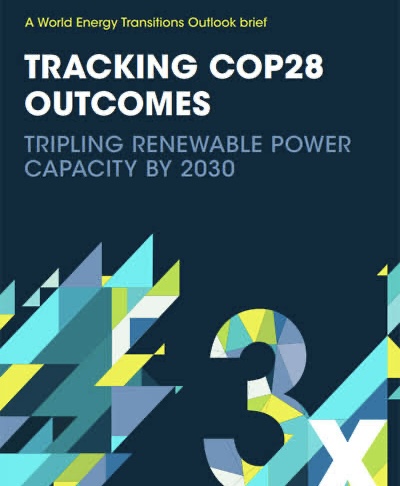To meet the ambitious goal established at COP28 of tripling global renewable energy capacity by 2030, the world must undertake a significant course correction. Despite the technical feasibility and economic viability of this target, realizing such a drastic increase in renewable energy projects will require strong determination, supportive policies, and large-scale investment.
The International Renewable Energy Agency (IRENA), in its World Energy Outlook brief, underscored the urgency of the situation by noting that 2023 saw a record-setting expansion in renewable energy, with 473 GW added to the global mix. However, to achieve the COP28 objectives, a dramatic escalation in effort and resources is necessary. An average annual addition of almost 1,100 GW of renewable capacity is required until 2030, more than doubling the achievements of 2023. This necessitates a leap in annual investment from $570 billion in 2023 to an average of $1,550 billion from 2024 to 2030.
Francesco La Camera, Director-General of IRENA, emphasized the challenge ahead, noting that despite the record capacity additions in 2023, meeting the tripling target is far from certain. The data reveals that progress is consistently falling short, and the transition away from fossil fuels to renewables is lagging behind what is necessary to achieve the goals outlined in the UAE Consensus at COP28.
To reach the ambitious target of 11 TW by 2030, an additional 7.2 TW of renewable power capacity needs to be deployed. However, without significant and urgent policy interventions, this objective seems unattainable. It is especially critical for G20 nations, which must increase their renewable capacity from just under 3 TW in 2022 to 9.4 TW by 2030, representing over 80% of the global target.
Achieving this level of renewable capacity expansion necessitates accelerated investment in infrastructure, such as power grids and storage; revised policies and regulations to improve market design and streamline permitting processes; enhanced measures to strengthen supply chains and develop necessary skills; and a substantial increase in investment, including public funds through international collaboration.
Despite these challenges, investment in the energy transition has reached new heights, with over $2 trillion invested in 2023. Yet, emerging markets and developing economies see only about half of this investment, with 120 developing countries attracting a mere 15% of global renewable investment. This discrepancy is even more pronounced in sub-Saharan Africa, which receives less than 1.5% of global renewable investment despite harboring a significant portion of the world’s energy-poor populations.
This imbalance in investment is starkly highlighted by the $1.3 trillion in subsidies provided to fossil fuels in 2022, a figure that matches the annual investment required to achieve the threefold increase in renewable capacity by 2030. Moreover, G20 members contributed $1.4 trillion in public funding to support fossil fuels in 2022, undermining the commitments made at COP28 to transition away from fossil fuel dependence.
The report calls for greater international cooperation to ensure financial flows to the Global South, where countries face some of the highest financing costs in the world. This underscores the necessity for enhanced international collaboration, including through the strategic use of multilateral development banks and public finance, to facilitate investment at scale and promote an inclusive energy transition that benefits all.
In conclusion, the path to tripling global renewable energy capacity by 2030 is fraught with challenges. Overcoming these obstacles requires not just financial investment but a comprehensive approach that includes policy reform, international cooperation, and a steadfast commitment to transitioning away from fossil fuels. Only through concerted global efforts can we hope to achieve the ambitious goals set at COP28 and pave the way for a sustainable energy future.
Source: ESI Africa



